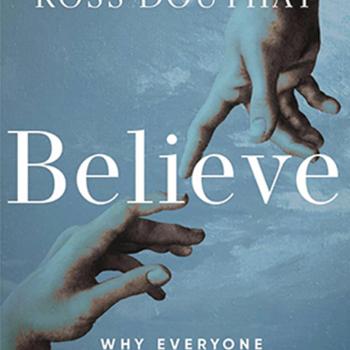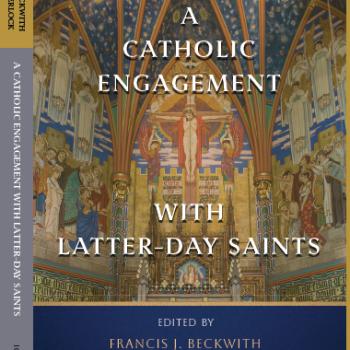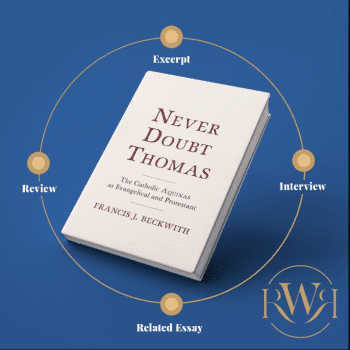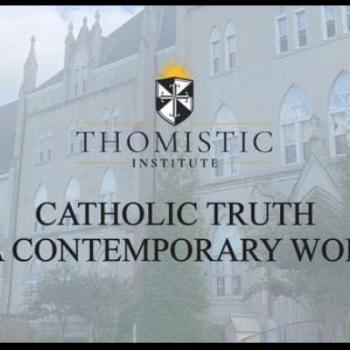Suppose someone, like me, a life-long Christian, after considering the arguments for and against Catholicism, decides that the case for Catholicism makes more sense to me than does the case for Protestantism, even though I believe that one can become and/or remain a Protestant without being unreasonable in doing so.
I raise this query because there are some–on both sides of the Catholic-Protestant divide–who think that if you don’t see the obvious truth of either position (depending on which side is arguing) you either (1) suffer from an epistemic defect in your cognitive equipment, (2) fail to appropriate to your noetic structure, either as a consequence of oversight, ignorance, or stubbornness, that one essential argument, book, or article written by this or that fabulously gifted apologist, or (3) have a sub-rational motive or cause for maintaining, or converting to, your current ecclesial home.
It seems to me that if one approaches the Catholic-Protestant question with one or more of these assumptions about the other side it requires that one must accept a clearly false belief, namely, that everyone approaches the question with the exact same evidential set or plausibility structure. What is that? In short, an evidential set (or plausibility structure) consists of sources of authority, background beliefs and reasons that one brings to the discussion and for which one has no reason to believe are unreasonable or not worthy of acceptance. So, for example, suppose I am reading the Book of Romans and I come across those passages that are often cited by Protestants as clear evidence of a Reformed view of soteriology. But instead of accepting the Reformed view, I actually do not find it compelling, since, in my plausibility structure, those passages not only do not have epistemological priority in my reading of Scripture (since I don’t think there are any good hermeneutical reasons for me to embrace that priority, though I understand why some people would do so) but in fact must be able to cohere with a host of other passages that if read in a certain way may serve as defeaters to the Reformed view–e.g., passages from Jesus’ teachings, the non-Pauline corpus, as well as other portions of Paul’s writings, the latter of which seem to cohere well with the Reformed account but in a way that some of us find too ad hoc and strained.
So, it seems to me that although I may find the Reformed view unconvincing I do not find it to be irrational, since I can see why some of my very smart friends accept it or some version of it. Thus, in order to convince a Catholic to abandon Catholicism, one must not just show that the Reformed view has explanatory power (I, and some other Catholics, don’t deny that!) or even that its explanatory power is better than the Catholic view’s explanatory power (since one’s embracing of Catholicism may include a variety of other considerations such as ecclesiology, liturgy, historical continuity, etc. that give Catholicism a clear edge in toto). Rather, it seems to me that one must show that the explanatory power is so much better than the Catholic account that to deny the Reformed view, after being fully informed of it, one would be irrational if one remained Catholic (in much the same way as one would be irrational for believing that the Earth is flat or that George Washington was not the first President of the United States after being fully informed of all the facts by reputable authorities that one has no reason to doubt).
My point is that what is often missing in these discussions is how our evidential sets or plausibility structures function in our interpretation and selection of evidence. For this reason, I have always thought it odd that Evangelical Protestants have greater tolerance for Young Earth Creationists (YECs) than for “Evangelical Catholics,” since it seems to me that the hermeneutical arguments to support the latter’s soteriology are much more plausible than the scientific arguments for believing the former. Then again, I am Catholic, after all. So, what would you expect?












